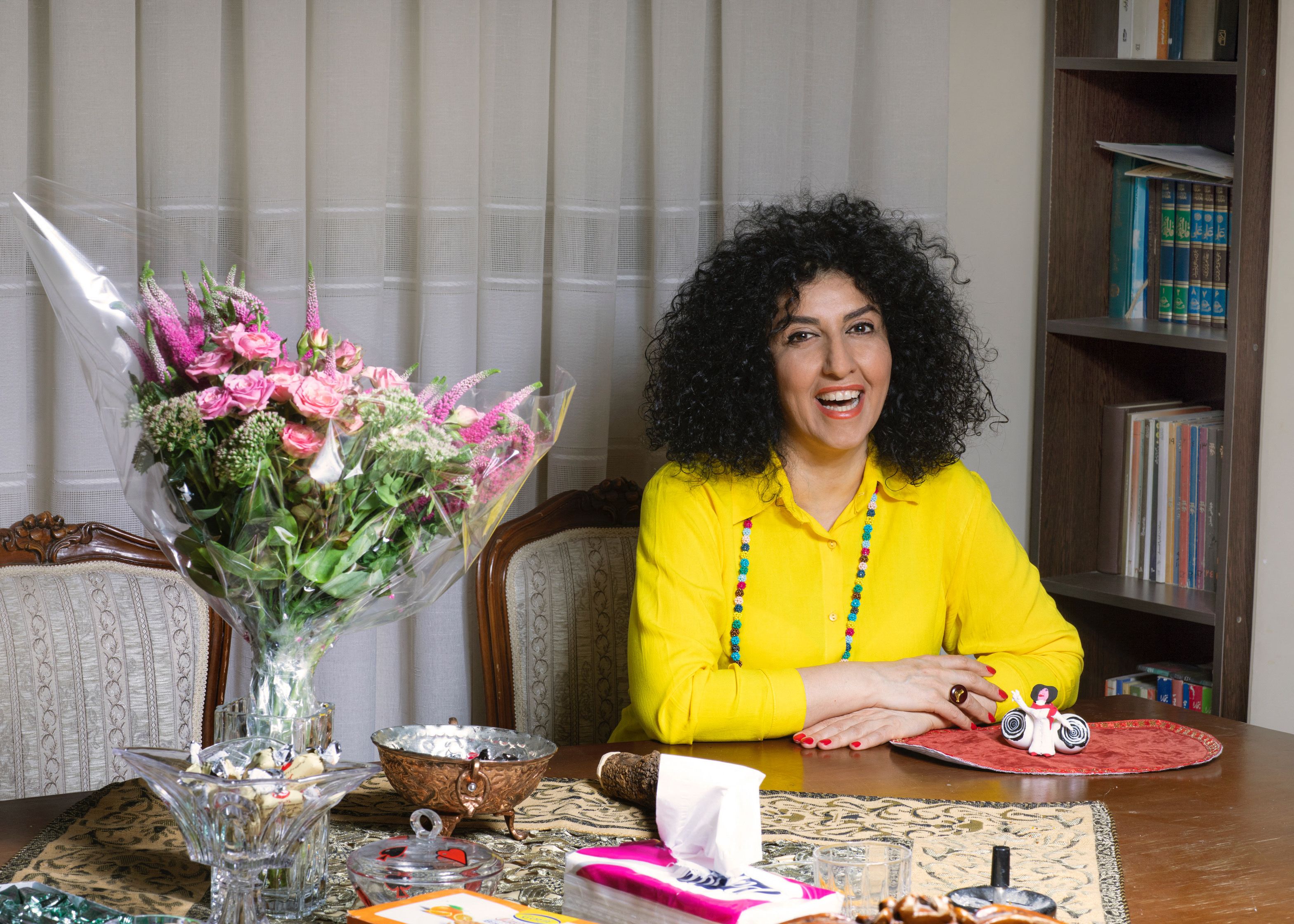Your support helps us to tell the story
From reproductive rights to climate change to Big Tech, The Independent is on the ground when the story is developing. Whether it's investigating the financials of Elon Musk's pro-Trump PAC or producing our latest documentary, 'The A Word', which shines a light on the American women fighting for reproductive rights, we know how important it is to parse out the facts from the messaging.
At such a critical moment in US history, we need reporters on the ground. Your donation allows us to keep sending journalists to speak to both sides of the story.
The Independent is trusted by Americans across the entire political spectrum. And unlike many other quality news outlets, we choose not to lock Americans out of our reporting and analysis with paywalls. We believe quality journalism should be available to everyone, paid for by those who can afford it.
Your support makes all the difference.Iranian Nobel laureate and activist Narges Mohammadi has gone on hunger strike in protest against her conditions in the notorious Evin prison.
A leading human rights activist with a history of protest against Iran’s mandatory hijab law, Mohammadi has been imprisoned 13 times and convicted five times during her years of campaigning.
She is currently serving multiple sentences totalling more than a decade in the horrific prison, where many of Iran’s political prisoners are held, after being arrested in November 2022.
Previously British journalist Nazanin Zaghari-Ratcliffe was held at Evin, which has suffered a number of Covid outbreaks in recent years, as well as those arrested during the widespread “Woman, Life, Freedom” protests against Iran’s hardline regime.
On Monday (7 November) morning, one month after she was awarded the Nobel Peace Prize behind bars, Mohammadi’s family announced that they had been informed she had begun her hunger strike.
In a statement, her family claimed that the 51-year-old, who last year released her book of essays White Torture: Interviews with Iranian Women Prisoners, is being refused medical treatment due to her refusal to wear a headscarf.
In their statement, Mohammadi’s family said that she was refusing to eat in protest against “the Islamic Republic’s policy of delaying and neglecting medical care for sick inmates, resulting in the loss of the health and lives of individuals”, and “the policy of ‘death’ or ‘mandatory hijab’ for Iranian women”.

According to her family, Mohammadi – who has kept up her activism from inside Tehran’s Evin Prison – requires treatment for heart and lung conditions.
However, a prosecutor has reportedly been blocking her transfer to hospital for a week, despite repeated appeals to prison officials and the judiciary. No further details about Mohammadi’s conditions were shared, although she was described as receiving an echocardiogram (an ultrasound scan) of her heart.
Last Wednesday (1 November), other female inmates reportedly protested for two days in hope of pressuring the authorities to transfer Mohammadi to hospital.
News of Mohammadi’s hunger strike sparked concern around the world. Speaking to AFP, chair of the Norwegian Nobel Committee Berit Reiss-Andersen condemned her treatment.
“The requirement that female inmates must wear a hijab in order to be hospitalised is inhumane and morally unacceptable,” she said. Iranian state media did not immediately acknowledge that Mohammadi had gone on a hunger strike.
Authorities arrested the activist last November after she attended a memorial for someone who had died during protests in 2019. Charges against Mohammadi include spreading propaganda against the state and were decried by the international community.
In October, Mohammadi was awarded the Nobel Peace Prize “for her fight against the oppression of women”. The vice-president of the Defenders of Human Rights Centre in Iran, Mohammadi is the 19th woman to win the prize, and the second Iranian woman after human rights activist Shirin Ebadi won in 2003.
Her award follows more than a year of women-led protests in Iran in the wake of the death of Mahsa Amini in the custody of the country’s morality police. Amini, 22, had been detained for allegedly not wearing her headscarf, or hijab, to the liking of authorities.
Unrest quickly grew, spiralling into one of the most intense challenges to Iran’s theocratic government. Mohammadi was behind bars as the demonstrations spread across the country, which saw more than 500 people were killed and 20,000 arrested in a heavy security crackdown.

Join our commenting forum
Join thought-provoking conversations, follow other Independent readers and see their replies
Comments